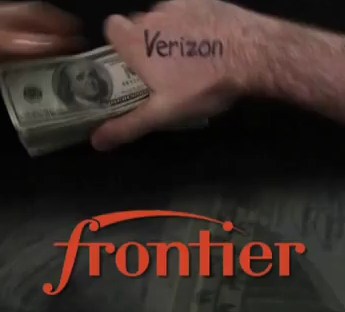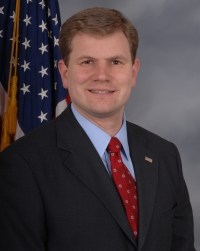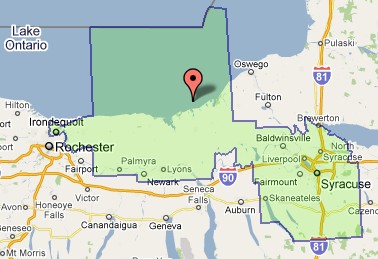 The Denver Post this morning did a major disservice to its readers in a heavily slanted editorial objecting to the reclassification of broadband service to restore the FCC’s traditional oversight authority over Internet providers.
The Denver Post this morning did a major disservice to its readers in a heavily slanted editorial objecting to the reclassification of broadband service to restore the FCC’s traditional oversight authority over Internet providers.
In their piece For Web and Broadband Regulation, Less is More, the editors at the Post delivered less facts and more industry talking points. It even mislead readers by quoting from two Republican FCC commissioners, completely ignoring the Democratic majority that would likely prevail in a vote on the matter.
The editorial forgets to mention why this debate is taking place. Readers should have been made aware the broadband industry the Post celebrates as successful under a light touch regulatory philosophy effectively-won total deregulation in a game changing court decision that stripped the FCC’s authority to provide checks and balances over today’s duopoly broadband market.
Comcast sued after the FCC punished the company for deliberately interfering with customers’ broadband speeds for certain Internet applications (despite Comcast’s initial denials). The Post characterizes such behavior on the part of the nation’s largest cable company as “only a couple documented issues, which were quickly resolved.” How does the Post think these were resolved? The FCC used the authority it now no longer has to pressure Comcast to stop. What stops the next “documented issue?”
AT&T’s former chairman and CEO Ed Whitacre gave Americans plenty to worry about in 2005 when the nation’s largest phone company infamously declared that popular web sites should not be expected to use AT&T’s “pipes for free.” That attitude is still being defended today by millions of dollars in lobbying, fake grassroots astroturf campaigns, and industry bought-and-paid-for “research studies.” Why spend all that money on a “resolved” issue?
But the most offensive part of the Post‘s piece was a completely dishonest attempt by the editors to imply there is widespread bipartisan opposition to common sense broadband regulation like Net Neutrality.
We had the opportunity Wednesday to talk with two FCC commissioners about the dual proposals for reform. They voiced concerns about an FCC move to redefine broadband networks as highly regulated telecommunications services.
Meredith Attwell Baker, who was nominated to the commission by President Obama, called the reclassification dangerous, adding it was a “brand new model.” FCC Commissioner Robert M. McDowell, nominated by President George W. Bush, worried about the unintended consequences that might come out of an additional layer of regulation.

On the right side of the Commission, the two Republican members Meredith Attwell Baker, a former telecom industry lobbyist and Robert M. McDowell.
How clever of the Denver Post to dangle the implication that Baker, being appointed by Obama, is somehow an ally. She is not. The Post only spoke with the two Republican minority commissioners for its editorial. Atwell was appointed by Obama under long-standing FCC rules which require that only three Commissioners may be members of the same political party. There is no practical difference between Atwell and McDowell. Why didn’t the newspaper speak to at least one of the majority Democrats on the Commission, all of which are expected to support Chairman Genachowski? Because that would have dramatically weakened the provider’s editor’s arguments and talking points.
Of course, there is nothing “brand new” about Title II authority. It has been used successfully to oversee today’s increasingly deregulated landline marketplace to protect rural Americans who don’t have competitive choices should their phone company provide abysmal service. What was new was the defective mechanism used by former FCC Chairman Michael Powell, under the Bush Administration, to oversee broadband using what the courts determined was phantom authority.
There is nothing about those regulations “ill-suited” to restoring the FCC’s lost authority, which is the ultimate game plan here. Providers have fed talking points, which editors at the Denver Post apparently devoured, suggesting everything from unintended consequences to the sky falling down should the FCC be able to implement its National Broadband Plan on its terms. Providers want the power to control and implement broadband deployment on their terms — the same ones that have left millions without any real broadband options at all, and the rest of us with slow service at high prices.
We hope that process ends with succinct and limited rules that apply to broadband providers, but leave them relatively unfettered so the Internet continues to be a place for entrepreneurs, thinkers and dreamers to pursue their ideas.
These are all noble goals, but they cannot be achieved if a handful of giant broadband providers start extorting fees from content producers and engaging in other abusive behaviors. The Post seems to think America is a world-leader in broadband, yet we are not. This country is now handily beaten by several Asian nations and even cities within the former Soviet Union and its east European bloc. Just this week Ookla released a speed index report that tells the truth about America’s broadband experience:
Here are the top 10 U.S. cities and their corresponding 30-day average speeds:
- San Jose, Calif. 15.02 Mbps
- Saint Paul, Minn. 14.53 Mbps
- Pittsburgh, Pa. 14.18 Mbps
- Oklahoma City, Okla. 12.12 Mbps
- Brooklyn, N.Y. 12.10 Mbps
- Tampa, Fla. 12.05 Mbps
- Bronx, N.Y. 12.01 Mbps
- New York, N.Y. 11.85 Mbps
- Denver, Colo. 11.68 Mbps
- Sacramento, Calif. 11.34 Mbps
The global top 10:
- Seoul, South Korea 34.49 Mbps
- Riga, Latvia 27.88 Mbps
- Hamburg, Germany 26.85 Mbps
- Chisinau, Republic of Moldova 24.31 Mbps
- Helsinki, Finland 20.58 Mbps Mbps
- Stockholm, Sweden 19.97 Mbps
- Bucharest, Romania 19.68 Mbps
- Sofia, Bulgaria 18.99 Mbps
- Kharkov, Ukraine 18.15 Mbps
- Kaunas, Lithuania 17.46 Mbps
With evidence like this, the editors at the Post need to get out from behind those telecom talking points and visit today’s real broadband world.


 Subscribe
Subscribe









